Why I Switched to Organic Wine
In this article, I’ll explain why I switched to organic wine, and how to read labels when buying organic wine.

I love wine. For me, it’s one of life’s great pleasures, right up there with raw milk cheese. But I recently switched to organic wine.
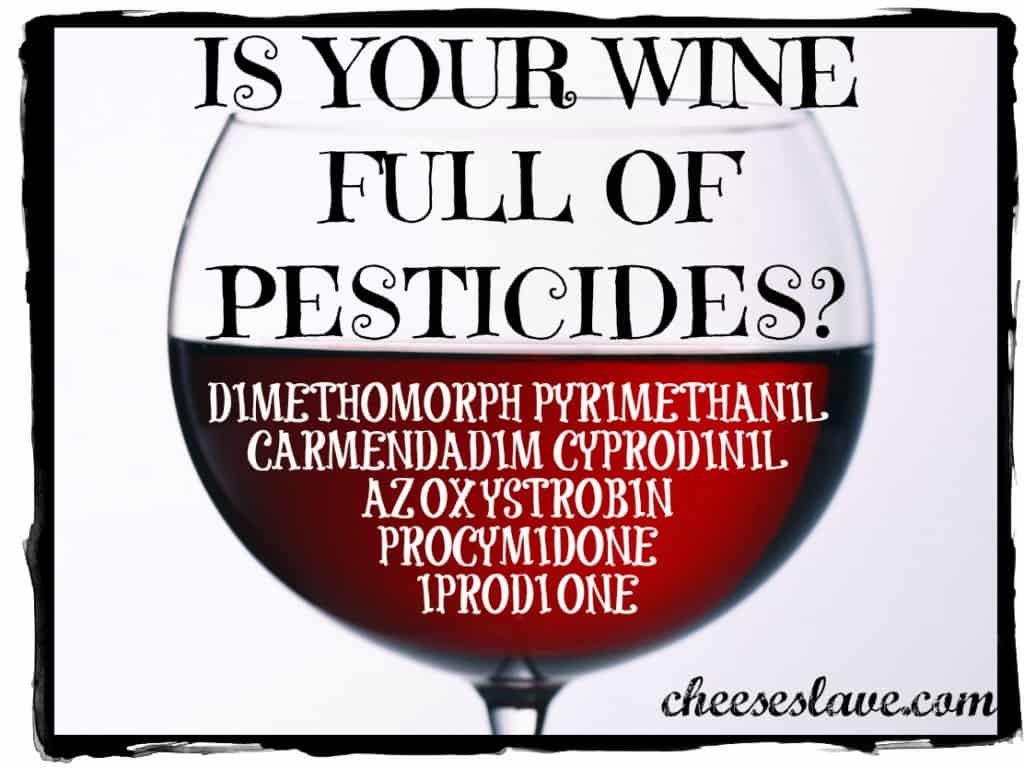
In this article, I’ll explain why I switched to organic wine, and how to read labels when buying organic wine.
I’ve also created a How to Buy Organic Wine infographic that you can use to decode the wine labels.
Why I Switched to Organic Wine
“A bottle of conventionally produced wine may contain up to 250 different types of chemicals,” according to EcoVine Wine, a Santa Barbara-based wine club specializing in organic wines.
As my readers know, I’m very conscientious about what I eat. I go out of my way to buy organic fruits and vegetables, and I always buy organic for crops that are sprayed heavily, such as coffee and peanut butter.
Recently, I started exclusively buying organic wine. I drink wine pretty much every night with dinner, and I don’t want to be swilling pesticides.
Since grapes are one of the Dirty Dozen (the top 12 foods with the most pesticide residue), I won’t buy non-organic grapes. So why would I buy non-organic wine?
I guess I was just too lazy/busy to think about it before. But since there is so much evidence that these pesticides sprayed on our food are carcinogenic, I’d rather avoid them. I’d like to skip breast cancer, thank you very much!
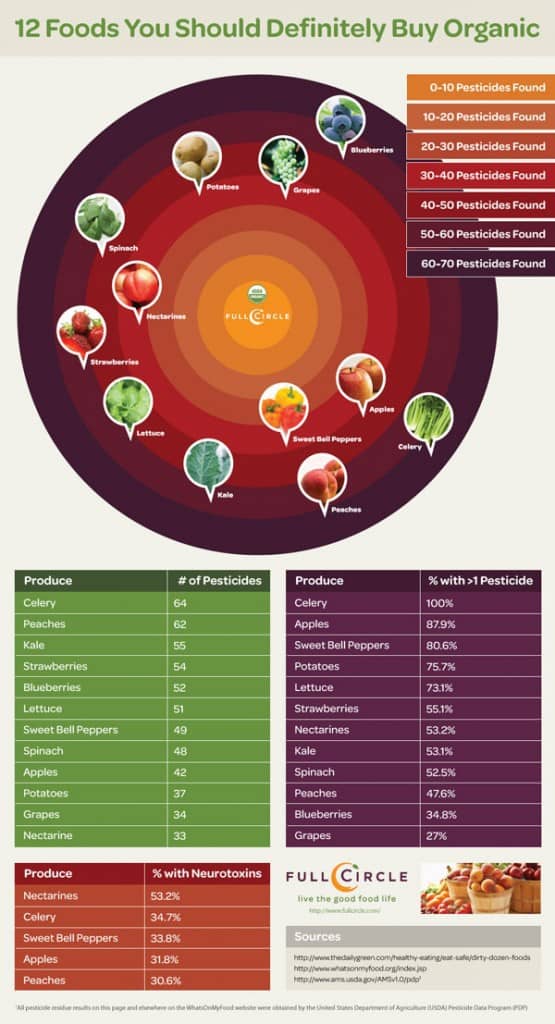
Wine Is Contaminated with Pesticide Residue
Unless you’re drinking organic wine or wine made with organic grapes, you’re likely ingesting pesticides. And it’s not just in America that they are spraying. Pesticide use is increasing around the world.
Study Found European Wines Contaminated with Pesticide Residue
“Pesticide Action Network Europe, together with NGOs from Austria, France and Germany, has uncovered substantial evidence that wines on sale in the European Union may contain residues of a large number of pesticides. The announcement follows an NGO investigation of 40 bottles of wine purchased inside the EU – including wines made by world famous vineyards.
100% of conventional wines included in the analysis were found to contain pesticides, with one bottle containing 10 different pesticides. On average each wine sample contained over four pesticides. The analysis revealed 24 different pesticide contaminants, including five classified as being carcinogenic, mutagenic, reprotoxic or endocrine disrupting by the European Union.” (Source: Pesticide Action Network Europe)
Pesticides Are Harmful to Winemakers, Too
Some sources (like the Chinese government) say that pesticide residue on wine is not substantial enough to cause health problems. I don’t buy that, because of the volume of other non-organic foods we eat on a daily basis. It’s cumulative.
That said, when I buy organic, I do so not just for my own health, but for the health of the food producers and the health of the planet. Why would I want to buy food that is making the food producers sick? Or that is poisoning our earth’s soil and water?
French Winegrower Dies of Leukemia
“A French winegrower, who died after contracting leukemia becoming the first farmer to have his illness officially linked to the pesticides he used for years on his crops, has spoken from beyond the grave giving a warning to the industry.
He is among 40 or so farmers in France whose illnesses have now been officially linked to their profession and the pesticides they have sprayed on the land by the French agricultural public health body.” (Source: The Telegraph)
How to Read Organic Wine Labels
It’s important to read the labels of the wine you buy. Here’s what to look for:
“100% Organic” – Made from 100% organically grown ingredients. The wine also was monitored throughout its entire production process. The bottle bears the United States Department of Agriculture (USDA) organic seal (the certifying agency must be listed). No sulfites are added, though it can contain naturally occurring sulfites (or sulfur dioxide, an antimicrobial substance).
“Organic” – 95% organically grown ingredients (the other 5% must not be available organically). On the label, you’ll see the USDA organic symbol. Again the certifying agency must be listed. No sulfites are added, though the wine can contain naturally occurring sulfites.
“Made with Organic Grapes” or “Made with Organic Ingredients” – Wine that contains at least 70% organic ingredients. Sulfites can be added, but it may not beyond 100 parts per million.
“Biodynamic” – Beyond organic. This is wine that is 100% organic, PLUS the grower has gone beyond to try to bring the farming process more closely in tune with nature. The concept of biodynamic farming originated from the early 20th-century Austrian philosopher Rudolf Steiner.
What About Organic Wine Outside the United States?
For wines outside of the U.S., look for the words “Vin Biologique” or “Organic Wine”.
How to Buy Organic Wine Infographic
I created this “How to Buy Organic Wine” infographic to help you shop for wine.
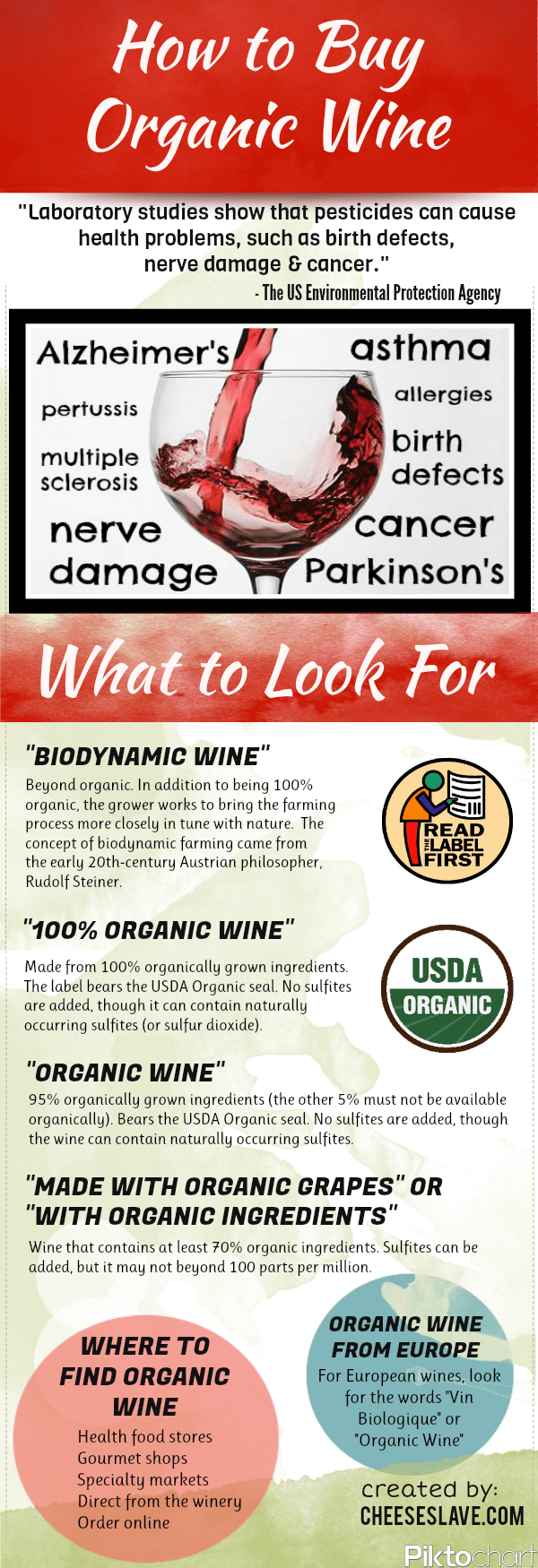
Is It Necessary to Avoid Sulfites in Wine?
There’s a lot of controversy about sulfites. Some sources say that sulfite allergy is not real: You Are Not Allergic to Sulfites.
Personally, I don’t think it’s necessary to avoid sulfites. If you want to buy organic wine with no added sulfites, and you can readily find it, by all means, do so. But if you can’t find “organic wine” and can only find “wine made with organic grapes,” I think the latter is just fine.
I personally have no problem with sulfites in wine, so I don’t look for “organic wine” — I just buy “wine made with organic grapes”. Although I have recently found an excellent and very affordable source of biodynamic white table wine at Trader Joe’s, which is what I now drink most nights.
Look for My Upcoming Post: Organic Wine Tour in Santa Barbara
Want to know the organic and biodynamic wines I drink? A couple of weeks ago, I took a weekend trip to Santa Barbara wine country to tour some organic wineries.
Needless to say, I was very impressed with what I found — I joined five organic wine clubs.
Look for that post coming soon.
Do You Drink Organic Wine?
Share your comments below. Do you go out of your way to purchase organic wine?
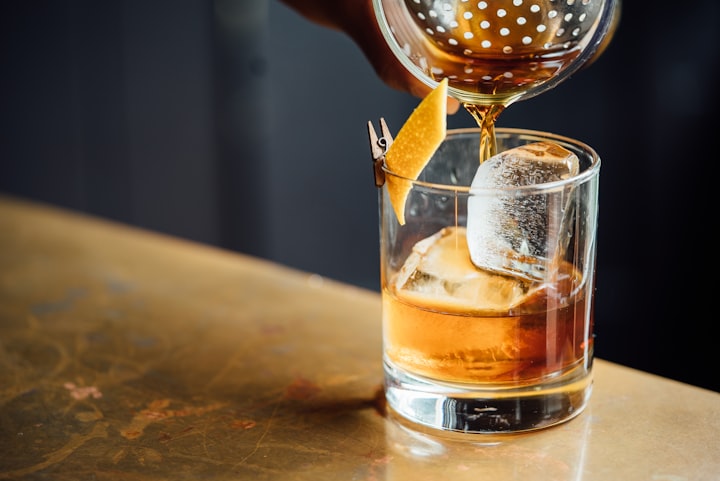
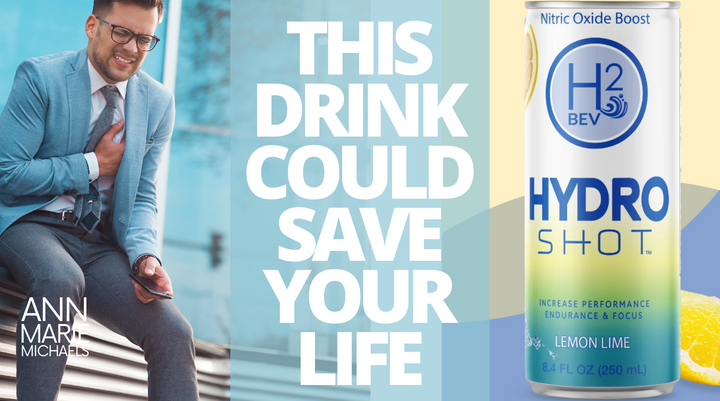
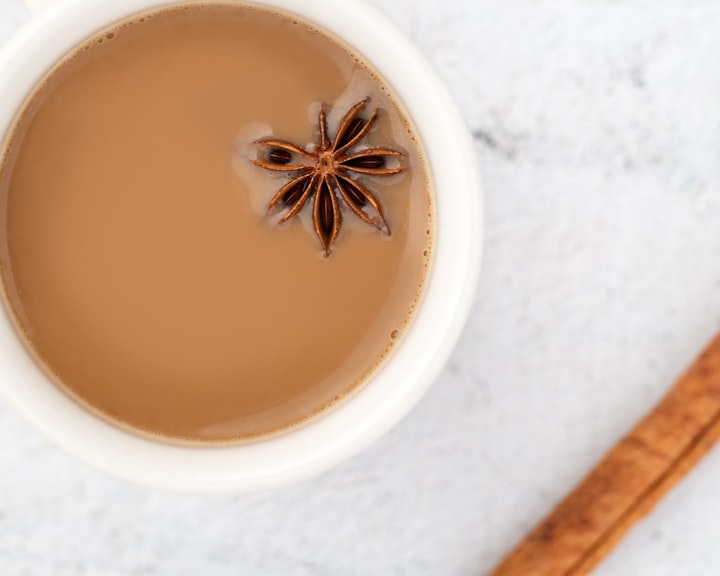
Comments ()